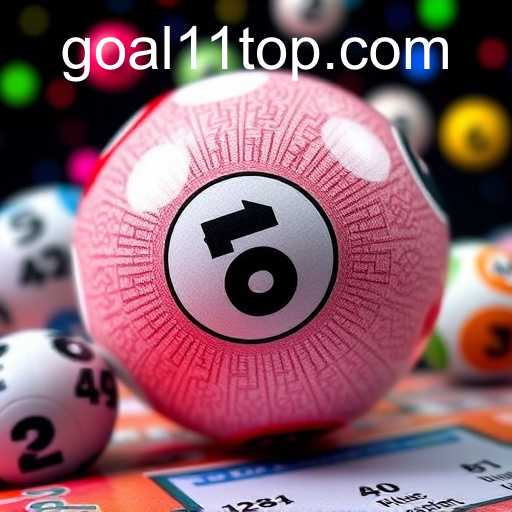This article delves into the fascinating world of lottery games, exploring their appeal, global variations, digital influences, and the cultural significance of pursuing lottery dreams while considering societal impacts and strategies.
Unraveling the World of Lottery Games: A Goal11 Perspective
The Allure of Lottery Games
Lottery games have fascinated millions across the globe for centuries. From the ancient Chinese Keno slips to the colorful scratch-off tickets found at local convenience stores today, the appeal of lottery games is unending. At their core, these games offer a mixture of hope and excitement. The mere possibility of winning a life-changing sum with little investment can tap into the deepest aspirations and dreams of individuals. “Goal11” within this context could signify a player's ultimate ambition in setting goals related to lotteries, whether attaining financial freedom or simply entertaining oneself in pursuit of those dreams.
The Mechanics of Lottery Games
Essentially, lotteries are games of chance. Participants purchase tickets with the hopes of winning, and numbers are drawn at random to determine the winner. The simplicity in the game’s mechanics is part of its allure. However, various formats make up the vast universe of lottery games.
One prominent type is the “draw” game. Think of Powerball or Mega Millions; these need participants to select their lucky numbers. The excitement builds until the official drawing occurs, and numbers are matched against those drawn. Draw games often feature dazzling jackpots that can reach astronomical figures.
Scratch-off tickets, on the other hand, offer instant gratification. Players reveal symbols or numbers by scratching a coating on the card, and prizes are awarded based on specific patterns or matches. Small wins are common, adding to their popularity.
The Social and Economic Impact of Lotteries
Lotteries exist for more than just individual gain. Often, they are run by governments or non-profit organizations with proceeds earmarked for social causes. The states and countries hosting these games channel funds into diverse projects ranging from educational initiatives to public infrastructure improvements.
While lottery revenues can be significant, they also prompt debates over their societal implications. Critics argue that the reliance on lotteries as a funding mechanism disproportionately affects lower-income individuals and potentially fosters gambling dependency. Nonetheless, when responsibly managed, lotteries do contribute positively to various public sectors.
The Global Landscape of Lottery Games
Exploring the global appeal of lottery games unveils a rich tapestry of traditions and variations across countries. In the United States, the Powerball and Mega Millions stand as quintessential giants offering massive payouts. Europe features the EuroMillions, testing the luck of millions across multiple nations.
In Asia, lottery games take on cultural nuances. Japan’s Takara Kuji and China’s Double Colour Ball are mainstays in their respective societies. These games not only provide entertainment but are often intertwined with cultural festivities and traditions.
The Digital Revolution and Its Impact on Lotteries
With digitization transforming industries globally, the lottery sector faces an evolutionary crossroads. Online platforms are emerging rapidly, offering more convenience for participants. Mobile apps and websites provide ticket purchase options, results notifications, and even online draw watching capabilities.
This digital shift beckons a new audience, particularly younger demographics, tech-savvy individuals seeking the thrill of the game without geographical constraints. Undoubtedly, digital lotteries will continue to shape the industry’s future, offering fresh opportunities—and challenges alike—for goal11-oriented players.
Strategies and Expectations in Pursuit of “Goal11”
For those intrigued by the concept of “Goal11” in lotteries, understanding the odds is crucial. While dreaming big motivates many, effective strategies can enhance their experience. Syndicate play, where a group pools resources for tickets, increases chances without significant cost burden. Similarly, setting definite budgets ensures players indulge responsibly, avoiding detrimental financial implications.
A more nuanced strategy involves number selection. Although each draw is random, some choose numbers based on frequency charts from historical results, while others rely on personal significant dates. Whatever the choice, the unpredictability of lottery outcomes keeps hope alive, an integral aspect resonating in the idea of reaching “Goal11”.
Legal, Ethical, and Regulatory Considerations
The integrity of any lottery relies upon stringent laws and regulations. These ensure fairness, transparency, and protect players from fraudulent operations. Regulatory bodies oversee game processes and safeguard participants' interests, establishing trust in the system.
In recent years, ethical concerns have surfaced regarding targeted advertising strategies and the social responsibilities of lottery operators. Balancing business objectives and ethical commitments remains paramount for the industry’s sustainable growth.
The Cultural Significance of Lottery Dreams
Beyond tangible rewards, lotteries embody hope and potential. Different cultures embrace lotteries in unique ways. They serve as metaphors for luck, serendipity, and even divine intervention. The allure often extends beyond monetary gains, encapsulating the “what if” scenarios, inspiring an entire range of human emotions tied to aspiration and fortune.
The continued engagement with lottery games, therefore, indicates their ingrained hold within societal narratives. “Goal11” represents the ever-present human drive to push boundaries, dream big, and imagine a brighter future.




